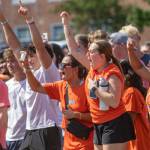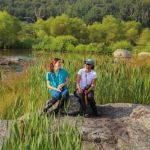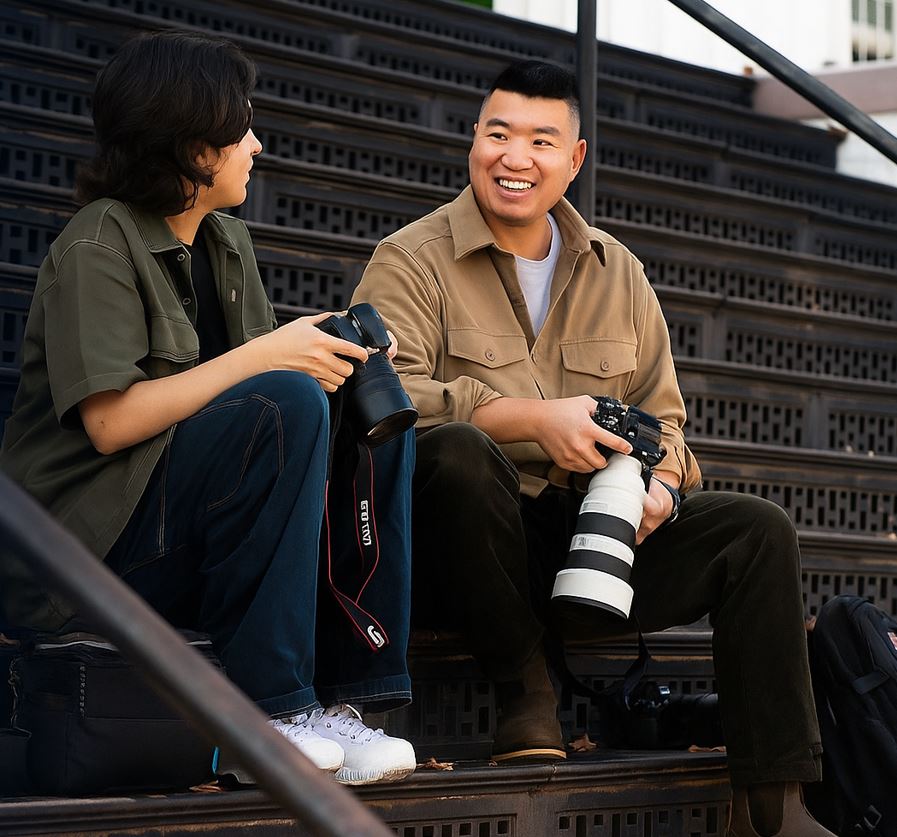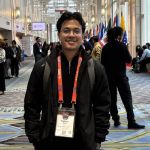
Venissa Ledesma ’19, a community involvement specialist at the Colorado Department of Public Health and Environment, reflects on the opportunities that she had at Gettysburg College to develop her intercultural fluency—an enduring skill that she finds highly valuable in her personal and professional life.
“To me, intercultural fluency means diving deeper, learning about historical contexts, cultural norms, values, and customs, so that you’re able to build relationships,” said Venissa Ledesma ’19, a Gettysburg alum from San Diego. “That is a huge part of my job in order to protect human health and the environment.”
After graduating from Gettysburg College with a major in environmental studies, Ledesma became a Peace Corps Volunteer in Cameroon, and when she returned, she received her Master of Arts in international and intercultural communication from the University of Denver. Today, she works as a community involvement specialist at the Colorado Department of Public Health and Environment—a role that entails working with people in many communities throughout Colorado.
Working with diverse groups requires the ability to go beyond baseline communication. Ledesma explained, “It’s not just about communicating what you need to. It’s about how people communicate with you and doing that in a way that builds trust and understanding.”
Ledesma views intercultural fluency as essential in today’s increasingly globalized society. She values the opportunities she had as a Gettysburg student to practice, absorb, and reflect on this skill to prepare her for the work she does today.
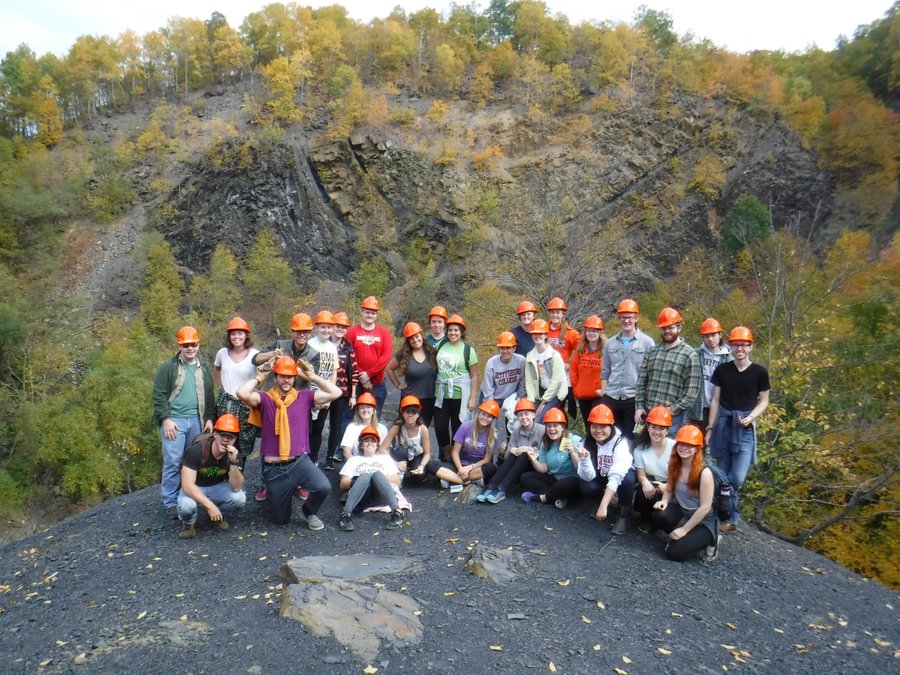
When visiting Gettysburg College’s campus as a high school senior, Ledesma remembers her tour guide sharing the numerous ways he was involved on campus. “I knew then that if I went to Gettysburg, it wouldn’t be a matter of if I would be involved, but what I would be involved in,” she said.
Arriving at Gettysburg without a major in mind, Ledesma was thrilled to take advantage of the wide range of opportunities that a Gettysburg education has to offer. “I really spent that first semester on campus taking different classes in different departments and finding what it was that I was passionate about,” she explained. “It was a very cool experience to not have to make compromises. At Gettysburg, I could try all these different things to fulfill my passions and still do well in my classes.”
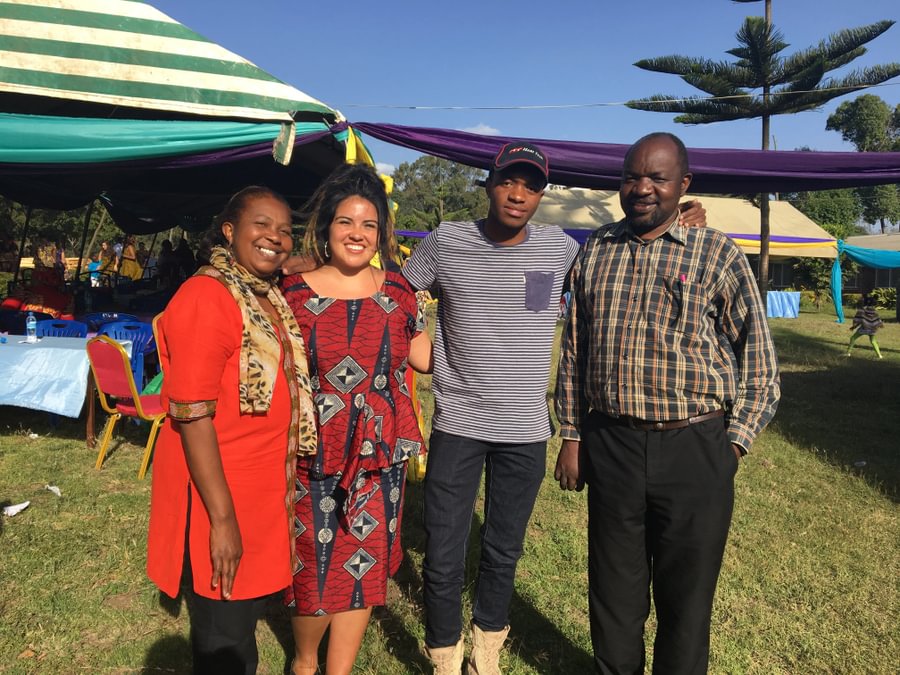
Along with the ability to explore different interests, one of the main factors that drew Ledesma to Gettysburg was its emphasis on global education. She recalled, “I didn’t know what I wanted to major in, but I absolutely knew that I wanted to study abroad.
“During my time at Gettysburg, I got to travel to Nicaragua. I got to live in Brisbane, Australia, and I traveled around Tanzania. That all culminated in my senior year, leading a trip to Namibia with 10 other students,” she said. “Those were once-in-a-lifetime experiences that I got to have over and over and over again.”
After spending two semesters abroad, Ledesma underscores how Gettysburg’s holistic approach to education allowed her to fully embrace intercultural learning in her personal and academic development. She explained, “The beauty of Gettysburg is that they understand that the learning you’re doing is not just done inside of the classroom. It’s very much learning by doing and gaining those experiences outside.”
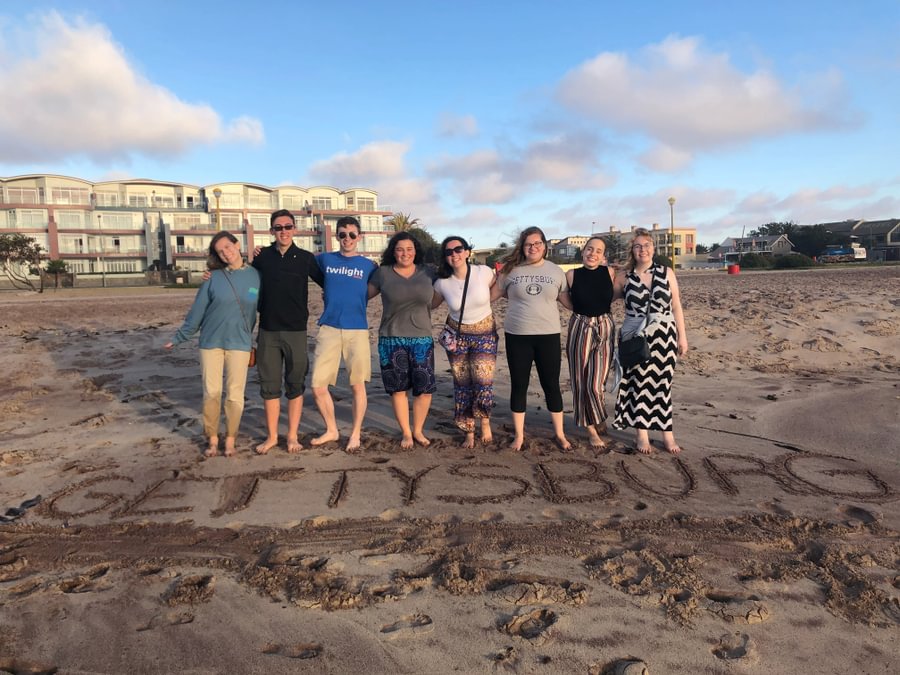
One of Ledesma’s favorite aspects of Gettysburg College is its strong sense of community, regardless of where she is in the world. “I am a very proud Mexican American, and so being a part of the Latin American Student Association, and president my sophomore year, was amazing,” she reflected. “Even when I went abroad, I still had that support system with me.
“I spent two semesters abroad, and all the jobs and organizations that I was a part of were waiting for me when I got back, almost as if I had never left,” she added. “I think that is a very special aspect of the College.”
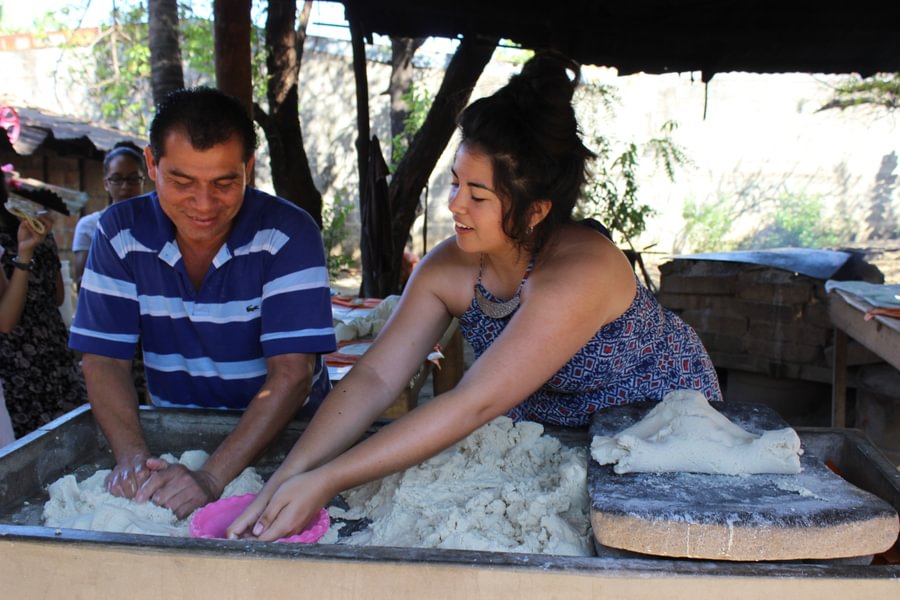
Ledesma was involved in numerous clubs and organizations while on campus, one being the Center for Public Service (CPS), where she worked as a program coordinator. She now reflects on and appreciates the center’s motto: Think critically. Act compassionately.
“I really tried to use that philosophy not only in my professional life, but my personal life as well,” she shared. “I think that really encompasses what it means to have intercultural fluency because you’re digging deeper, and you’re acting with empathy and having an open mind. I think those skills are so important to have in this day and age when we are so interconnected, not just by the internet, but by our humanity.”
Related Links:
External Links:
By Brooke Askin ’25
Photos submitted by Venissa Ledesma ’19
Posted: 09/04/25
